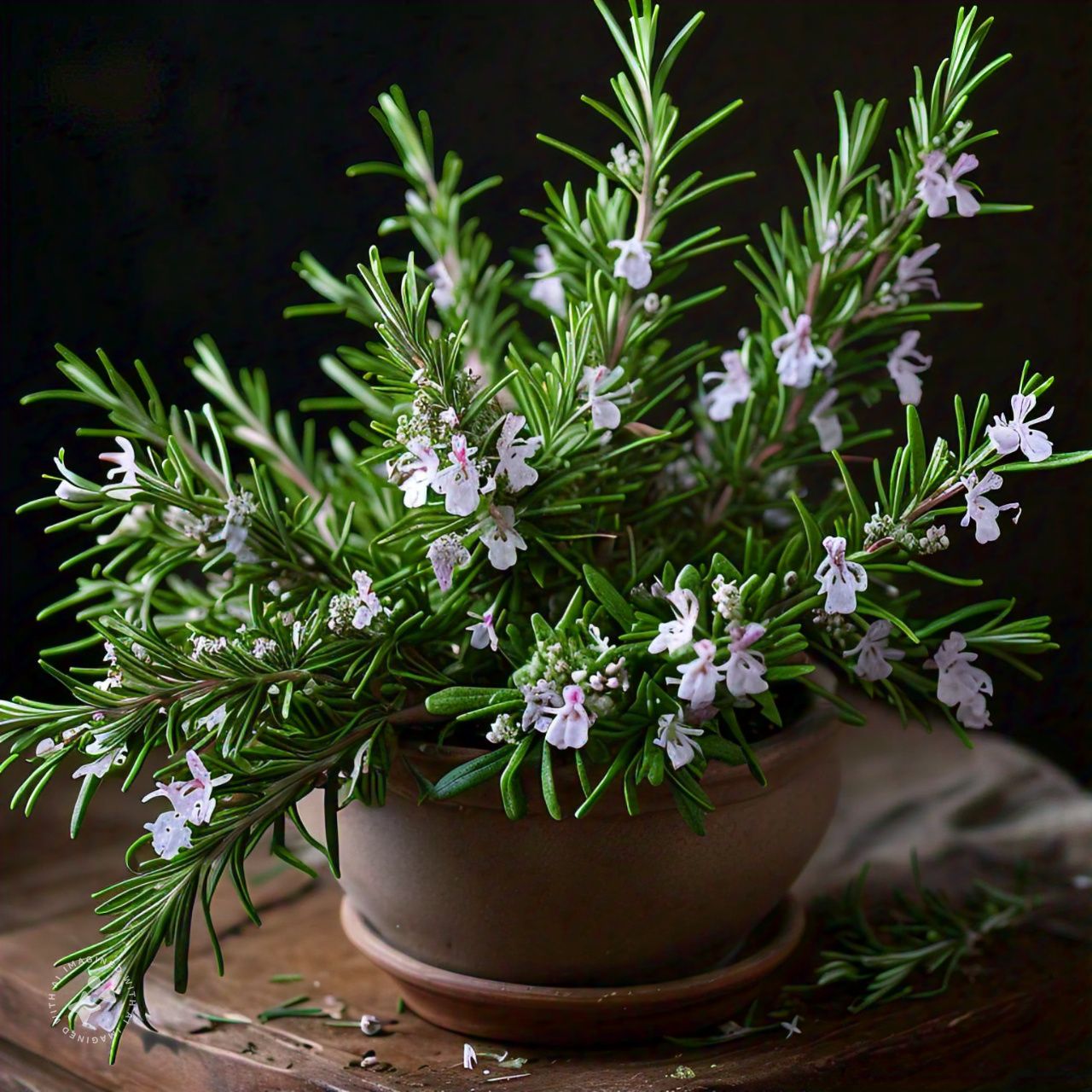Rosemary is a fragrant evergreen herb native to the Mediterranean region. Revered for its unique, pine-like aroma and robust flavor, rosemary has been a culinary and medicinal staple for centuries. Whether used fresh or dried, this herb is a versatile addition to your kitchen and wellness routine.
Key Features of Rosemary
-
Distinct Flavor: Woody, earthy, and slightly peppery.
-
Rich in Nutrients: Packed with antioxidants, vitamins, and essential oils.
-
Medicinal Properties: Known for its cognitive, digestive, and anti-inflammatory benefits.
-
Versatile Usage: Suitable for cooking, teas, and natural remedies.
Benefits of Rosemary
1. Culinary Enhancement
Rosemary’s strong, aromatic flavor enhances a variety of dishes, making it a favorite among chefs and home cooks.
2. Health Benefits
-
Improves Memory and Concentration: Contains compounds that may boost brain function.
-
Supports Digestion: Helps alleviate bloating and indigestion.
-
Rich in Antioxidants: Protects cells from oxidative stress.
-
Anti-Inflammatory Properties: May reduce inflammation in the body.
3. Easy to Grow and Store
Rosemary thrives in various climates and is easy to grow at home. It can be dried and stored for long-term use without losing its flavor.
Uses of Rosemary
Cooking Tips
-
Soups and Stews: Add fresh or dried rosemary sprigs for a robust flavor.
-
Roasted Vegetables: Sprinkle rosemary over potatoes, carrots, or zucchini.
-
Herbal Teas: Steep rosemary leaves for a refreshing and health-boosting drink.
-
Homemade Bread: Infuse rosemary into dough for aromatic bread.
-
Salad Dressings: Blend rosemary with olive oil and lemon juice for a flavorful dressing.
Seasonal and Holiday Favorites
-
Winter Comfort Foods: Enhance soups, casseroles, and baked goods with rosemary.
-
Festive Roasts: Use rosemary in roasted vegetable medleys for holiday feasts.
-
Spring Salads: Add a subtle touch to vinaigrettes or herb dressings.
-
Autumn Stews: Pair rosemary with root vegetables and legumes for hearty dishes.
How Does Rosemary Compare to Other Herbs?
| Feature | Rosemary | Other Common Herbs |
|---|---|---|
| Flavor Profile | Woody, earthy | Varies (e.g., minty, spicy) |
| Usage Versatility | High | High |
| Shelf Life | Long (dried) | Depends on herb type |
| Nutritional Value | High in antioxidants | Varies |
FAQs
1. What are the health benefits of rosemary?
Rosemary is known for improving memory, supporting digestion, and providing antioxidants.
2. Can rosemary be used in desserts?
Yes, rosemary can be infused into syrups or baked into cookies and cakes for a unique flavor.
3. How should rosemary be stored?
Fresh rosemary should be refrigerated, while dried rosemary can be kept in an airtight container in a cool, dark place.
4. Is rosemary suitable for all diets?
Yes, rosemary is plant-based and suitable for vegetarian, vegan, and gluten-free diets.
News and Information
The Rising Popularity of Rosemary
As people explore more natural and wholesome ingredients, rosemary is gaining traction for its culinary versatility and health benefits. Its essential oils are also becoming popular in aromatherapy and natural skincare products.
The Impact of Food Waste on the Environment
How Rosemary Helps Reduce Food Waste
-
Long Shelf Life: Dried rosemary lasts for months, reducing spoilage.
-
Multi-Purpose: Can be used in cooking, teas, and even as a natural air freshener, maximizing utility.
-
Home-Grown Option: Growing rosemary at home ensures a fresh and sustainable supply.
Reducing food waste is vital for environmental sustainability. Herbs like rosemary, with their longevity and versatility, are eco-friendly choices for conscientious consumers.
Conclusion
Rosemary is more than just a culinary herb; it’s a powerhouse of flavor, health benefits, and sustainability. From soups to teas, this versatile herb can elevate your cooking while promoting wellness. Its long shelf life and ability to reduce food waste make rosemary an essential ingredient in every kitchen. Incorporate rosemary into your meals and lifestyle to enjoy its myriad benefits and contribute to a healthier planet.





Share:
The Ultimate Guide to Celery: Benefits, Uses, and Seasonal Inspiration
Thyme: A Culinary and Medicinal Powerhouse